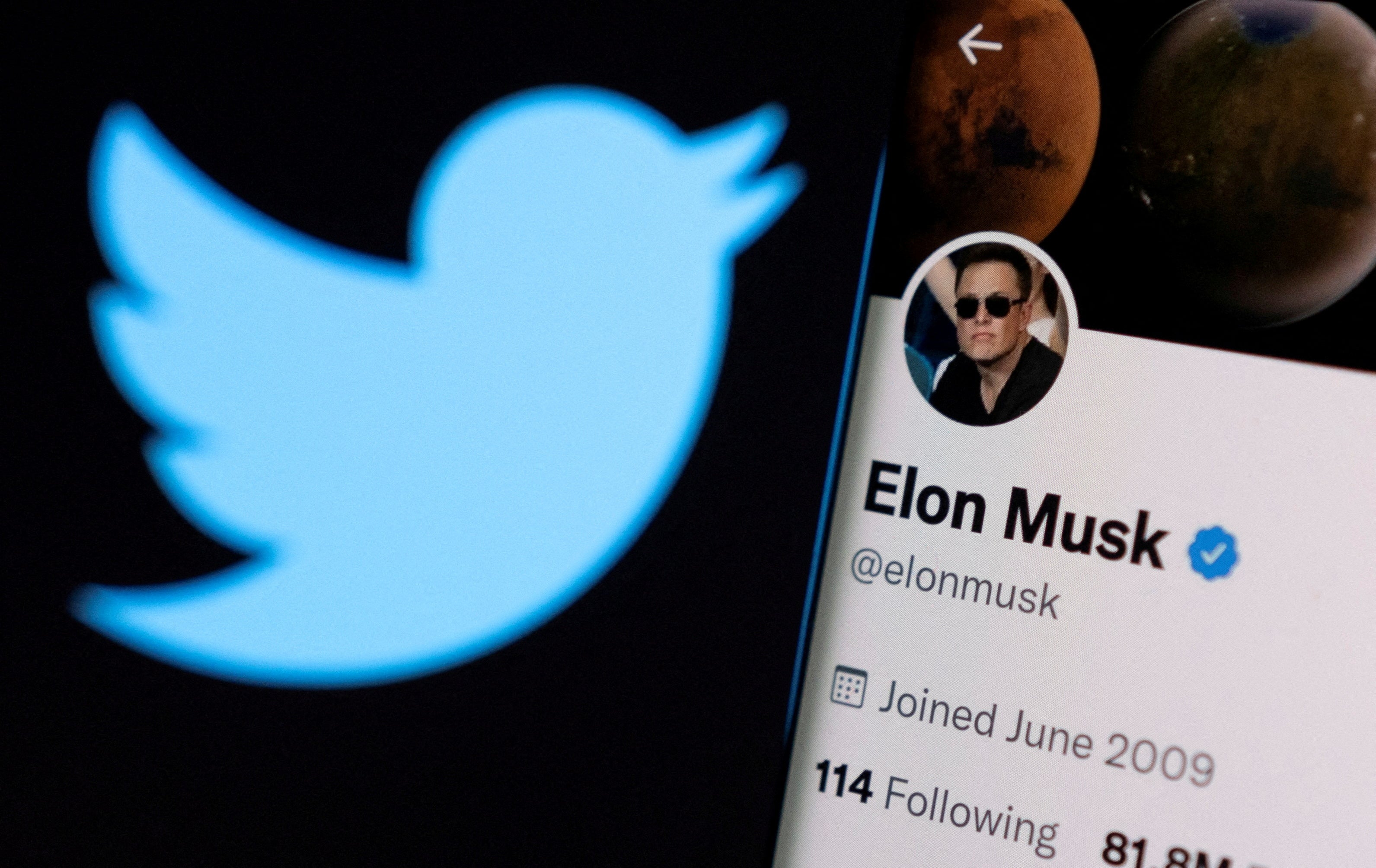I won’t be quitting Twitter – it changed my life
As an autistic person, socialising can be difficult, but Twitter allowed me to develop meaningful friendships more quickly


Your support helps us to tell the story
From reproductive rights to climate change to Big Tech, The Independent is on the ground when the story is developing. Whether it's investigating the financials of Elon Musk's pro-Trump PAC or producing our latest documentary, 'The A Word', which shines a light on the American women fighting for reproductive rights, we know how important it is to parse out the facts from the messaging.
At such a critical moment in US history, we need reporters on the ground. Your donation allows us to keep sending journalists to speak to both sides of the story.
The Independent is trusted by Americans across the entire political spectrum. And unlike many other quality news outlets, we choose not to lock Americans out of our reporting and analysis with paywalls. We believe quality journalism should be available to everyone, paid for by those who can afford it.
Your support makes all the difference.In the wake of billionaire Elon Musk buying Twitter, people seem prepared to leave the platform behind them. Not only have more high-profile figures like actor and prolific tweeter Jameela Jamil announced their intention to leave the app, but a mass exodus could be on the horizon, with hashtags like #LeavingTwitter trending across the platform.
Although Twitter can be a hellsite at times, I will be staying put. I hopped on the Twitter train pretty late compared to my peers, reluctantly starting an account in 2019 in order to keep up with goings on as politics editor of my student paper – but everything changed once we were plunged into the pandemic.
Back in my childhood bedroom, with the final months of a university experience four years in the making ripped away from me, it truly felt like I was a child again too. As an autistic person, socialising was something I found painfully difficult when I was younger. There was no friend-making playbook for neurodivergent girls, so I spent the majority of my childhood and adolescence friendless.
In terms of socialising and building connections, university was a game changer for me. So when the pandemic took the university experience, including in-person teaching, away, I felt like I was back at square one.
I had hoped that moving to a new city in the autumn of 2020 to start a Masters degree would give me a second chance in terms of meeting new people, overcoming my social anxiety, and building back a lot of the confidence I lost in lockdown earlier that year.
Sadly, the course was largely remote, and Covid restrictions meant that despite being in one of the greatest cities in the world, I was very limited in terms of where I could go. Consequently, it was really difficult to meet new people, and that gnawing loneliness in the pit of my stomach that I recognised from the primary school playground grew stronger. It was then that I started engaging with Twitter a lot more.
Because Twitter is largely set up as a collection of subcultures – from “Journo Twitter” to “Animal Crossing Twitter” – I was able to find people of similar interests extremely quickly. What started as retweeting thoughts that resonated with me and replying to jokes I thought were funny soon turned into in-depth conversations, group chats and long-lasting friendships. With every ping of my phone I was reminded that just because I was alone, that didn’t mean I was lonely.
When I meet people face-to-face, I usually have to think about things like how much I blink, my posture, how I move my arms, adding intonation to my voice, and balancing between too much and too little eye contact. This makes meeting new people hard for me, lockdown or no lockdown. It’s part of being autisitic, but because Twitter is online, I was able to develop meaningful friendships faster. I could focus on showing people who I really am, rather than thinking about all the “masking” that’s expected of me.
To keep up to speed with all the latest opinions and comment, sign up to our free weekly Voices Dispatches newsletter by clicking here
But that doesn’t mean a lot of my Twitter friendships were limited to online-only. Now that we’re out of lockdown, the vast majority of my friends in London, whom I see regularly, are people that started off as an icon on a screen. Because I was fortunate enough to get to know a number of people who also lived in London, a lot of my online friends soon transitioned to “IRL” friends. Without Twitter, my social life wouldn’t be half as good as it is today.
At the same time, my Twitter friendships with people from other areas of the UK and even further afield are, in my opinion, no less valuable than the ones that involve IRL contact. In school, the idea that online friends were this murky, seedy, thing reserved for creepy old men and social outcasts was constantly reinforced, but I know I’m not the only one who has developed meaningful relationships through Twitter. We can credit the app for revolutionising the way we think about online friendships, helping to normalise them and foster positive connections between like-minded people.
I don’t know what plans Elon Musk has for Twitter, but as someone who is also autistic, I hope he recognises that connection is at the heart of the plaform. Twitter has been a lifeline for me and so many others around the world.
Join our commenting forum
Join thought-provoking conversations, follow other Independent readers and see their replies
Comments